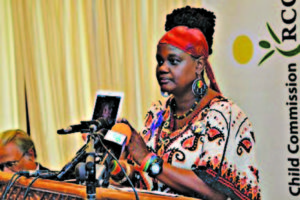– says ecstasy bust in school system must prompt serious discussion
The discovery of the illegal drug ecstasy in schools in Region Three (Essequibo Islands-West Demerara) and Region Four (Demerara-Mahaica) have prompted much worry, with one child rights activist urging the authorities to take serious action to prevent reoccurrences.
According to activist and Rights of the Child counsellor Nicole Cole, Government must “walk the talk” of placing guidance counsellors in as many schools as possible, if it is truly serious about protecting the nation’s children. She pointed out that children spend many hours in schools and the environment must be safe at all times.

“Children need safe spaces and places to grow and develop and once the school environment becomes flooded with dangerous, harmful drugs then there will be another public health problem burgeoning, which is addiction. Our society already has a huge alcohol abuse problem and a survey has shown that consumption of alcohol can start as early as 11 years old.”
“The absence of counsellors, poor parenting coupled with rampant child neglect may have led to the use of harmful drugs such as ecstasy being used by children. What this points to is the need for a public health response which has to be preventative as well as curative! There is need for drug rehabilitation services because ‘drug addictions’ are the end result of drug abuse and misuse,” she noted.
Back in 2016, then Education Minister, Dr Rupert Roopnaraine had declared that having counsellors in every school is crucial. In sections of the media, he was quoted saying that a central counselling unit was established in the Education Ministry in order to have trained counsellors in schools across the country.
“The Rights of the Child Commission had visited the then Minister of Education, Dr Roopnaraine and endorsed his utterances on placing guidance counsellors in schools but all that now appears to be a fleeting illusion to be pursued but never attained,” Cole observed. Calls to current Education Minister Nicolette Henry to ascertain the status of this plan went unanswered.
“Worrying trend”
The Customs Anti-Narcotics Unit (CANU) had announced a “worrying” trend whereby date-rape drug ‘ecstasy’ is being sold to students in at least five schools across Regions Three and Four.
The date-rape drug is making its way into schools after being already popular among many affluent members of society, according to CANU Deputy Head, Lesley Ramlall. The anti-drug enforcement agency is reportedly working with education officials to address the illegal practice.
“A lot of people are using it for their sexual enhancement and now it’s trickling down to our youths in schools. The disturbing thing is that when you look at some of the videos that the children have in their phones, especially of our girls, is really worrying for us,” Ramlall said.
While it was not revealed if or how many of these affluent individuals of society were charged; Ramlall says CANU is working on tracking down the drug mules and is not inclined to carry out full-fledged investigations in schools.
“We will not get into any school without the invitation of the Ministry of Education. In all the schools we found the ecstasy, the children admitted to the use of it, the selling of it. We have gone to the other step of arresting persons who are selling this to the school children,” the CANU official outlined.
In the meanwhile, CANU will collaborate with the Education Ministry and Regional Education Officers to combat the growing trend of drug use in schools which investigators believed is linked to the many explicit videos of young girls which have been surfacing online. The production and distribution of such material is prohibited under the recently enacted cybercrime legislation.
All of these matters were raised at Monday’s CANU staff training in Georgetown where Public Security Minister Khemraj Ramjattan had called on parents to closely observe the activities of their children.



